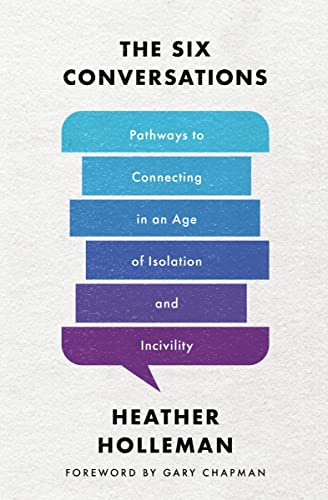


It has been well over two decades, but I remember it clearly. My father, in the closing days of his life, was in a shabby nursing home in North Alabama. Traveling from Kentucky to make what might be a final visit, I was hopeful we could have “the conversation” . You know what I mean, that conversation where you talk about all the “stuff” left unsaid; or, at a minimum, say final goodbyes. I did not have the forethought to prepare for that conversation, but as he lay there, bed-ridden, disfigured by age and ravaged by disease, I knew that there might never be another opportunity. When we had finished our usual small talk, and the room was quiet, I said “Dad, Is there anything you would like to talk about?”
Laying on his back, looking at the ceiling, I could tell he was thinking. Absent his dentures he was chewing on his gums, unsupported lips flapping. As I looked at him he avoided eye contact. Tears began to well up and slowly roll down his cheeks. Chewing vigorously, he looked at me and said, “Could you hand me a cookie out of that drawer?”
Some observations after reflecting on that scene:
- I was deeply disappointed we did not have “the conversation”. In retrospect, my expectation was naive. If we had not been able or willing to have such conversation in the previous 40 years, the likelihood of having it in the waning moments of his life was not reasonable. Meaningful, beautiful conversations may happen when death is immanent, but, it is too late to deepen and enrich the relationship. The lesson is obvious, the time for “the conversation” is always now (a suitable moment) before “last rites”, while there is still margin to enjoy life together.
- As shared earlier, I was not prepared for the conversation. Having “the conversation” requires intentionality and conversational skills, neither of which preceded that day; which brings us to the subject of this post, basic skills.
In chapter 6, Holleman hones in on four basic conversation skills: - Letting others speak
- Listening
- Limiting distractions
- Loving through your face
Understanding and practicing those skills are essential to being a great conversation partner. Had I possessed those skills, the conversation might have gone much differently.
Chapter 6 – Revisiting the Basics
…the basics of how to serve as a great conversation partner. It’s a lifelong skill we might continue to hone—no matter how old we are, smart we are, or extroverted we feel. Everyone needs help when it comes to loving others better in conversations.
Holleman, Heather. The Six Conversations (p. 93).
Letting others speak —What is my goal in having a conversation?
“When you enter a new conversation, think first about the goal of letting others speak.” …that is not the way I usually approach conversation. More often, I aim to talk rather than considering the two-way goal of a better conversation, Needing to share my opinions, I am, as Holleman confesses, a “monologue-giver and interrupter”
— “someone who loves to spout all my opinions and talk and talk and talk. And if you are talking, believe me, I’d interrupt you with my own feelings or personal stories to turn the conversation back to me. Nobody wants or needs a friend like this.” —
Avoid interrupting others. Loving conversationalists limit interrupting. They wait. They’re patient. They let others talk. Conversation is a warm connection. It’s not therapy or a one-sided monologue. It’s connection. Instead of interrupting, they become better listeners.
Listening — growing in the area of listening well.
“supportive listening,”
I learned what a profound act of love it is to truly listen to someone with our full attention. When we listen to others, we offer not only our time but also our psychological presence, our cognitive attention, and our emotional responsiveness, all of which are finite and thus valuable interpersonal resources. Extending the effort to listen to someone may therefore be conceptualized as an expression of affection for that person, at least in situations when listening is not otherwise expected or compensated.
The Six Conversations (p. 99)
Supportive listening involves listening for a whole narrative and interpreting the information someone gives you to make a larger story about their lives.
Learning what to listen for …
became a life-changing moment of transformation for me when I realized how to listen.
LISTEN FOR TRANSFORMATION.
LISTEN FOR THE STORY OF CHANGE
LISTEN FOR WHAT SURPRISES YOU, UNSETTLES YOU, OR DISTURBS YOU.
LISTEN TO SUPPORT.
People love to feel understood and really seen. In research on the core principles of close relationships, psychologists note that how close we feel in a relationship depends on whether we feel someone understands what we value—the “extent to which they are cognizant of, sensitive to, and behaviorally supportive of each other’s core needs and values.”
…we need to bring “a kind of presence to other beings in which one is receptive and open to being influenced by them.”
Limiting distractions
Holleman’s advice for limiting distractions can be summarized succinctly with do not have a cellphone present (I would add do not bring your dog 🙂 ). She suggests having a notebook and taking notes that can be referenced. I thought that to be awkward, but thinking about how easily I forget, it has merit and I will try it.
While this may sound clinical and too robotic to you, I can assure you that taking notes—like you’re a student of your new friend—will serve you well in conversation and immediately form a special bond. As you limit distractions, take notes on your friends like you’re a student of them. What are you learning about them? What upcoming events, anniversaries, or difficult days lie ahead for them?
Loving through your face
For years, people would ask me what was wrong, why I was so annoyed, or what made me so mad. I would say, “What? I’m just thinking deeply about what you’re saying.”
Consider how to express love, curiosity, and investment through your face as you listen to others.
The story below shows how much I identify with her experience.
A significant part of my career at Ford Motor Company included working as an internal consultant for organizational change, specifically training and development in participative management. Effective communication skills were a critical factor to any success. Accordingly, I had the opportunity for my communication skills to be assessed and improved. I must admit that, at that time, my opinion of my communication skills was very high. In fact, I felt the assessments were unnecessary. A part of the assessment was to participate in a role play exercise which involved conflict and required skillful communication for resolution. The exercise was video taped.
After completing the exercise, I was pleased with my performance and was looking forward to reviewing the video.
The video was shocking. In my mind I had been polished and convincing, skillfully controlling the situation and reaching a satisfactory resolution. What the video revealed was angry, intimidating facial expressions and body language. My demeanor was controlling and arrogant.
For the first time, I recognized what others had known all a long. I was not the person I believed I was. With that realization, I began to understand why many prior difficult interpersonal circumstances had puzzled and frustrated me and defied resolution. That occasion of truthful self-awareness was a turning point which changed me profoundly.
In a recent casual conversation with Ann, she remarked, “Why are you angry?” What???
STILL ON THE JOURNEY
Wow, thanks for sharing from your own experience. It is so humbling when we finally see in ourselves what others see. It’s in that learning moment thriugh our sincere humility that we grow closer to representing Jesus. I love your challenges to think and grow, George. I can’t wait for that porch time.